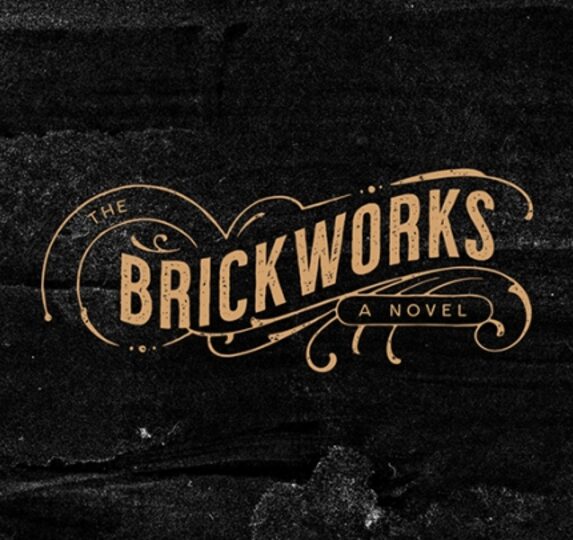
The Brickworks
Lucy E.M. Black
Now or Never Publishing, 2023
Review by Hollay Ghadery
The challenge with writing historical fiction is not just taking the past and bringing it to life, but making it immediate. As immediate as the page in front of you, the smell of dinner cooking in the next room, the weight of your dog’s snout in your lap, or the chitter of insects in the garden outside. The Brickworks by Ontario author Lucy E.M. Black is a luminous example of a book that overcomes this challenge with inexhaustible ease.
In The Brickworks, Black’s fourth book and third novel, we are immediately immersed in the story of Alistair and Brodie, two ambitious Scottish immigrants to North America at the turn of the century. Their stories merge when both men are employed at a steel mill in New York to help build a bridge—Alistair, as a manager; and Brodie, as an engineer. The men become friends. Their shared ambitions, fraught pasts, and dedication to hard work bring them together, spurring them to pool their savings to create a brickworks in the fictional town of Breamor, Ontario. Here, the men encounter the crush of love and loss, of hardship and friendship as they try to build a life for themselves in a small, rural community.
The fortitude required for these men to succeed, personally and professionally, is beautifully reflected in the strength and complexity of the language in the book. Alistair and Brodie speak with a thick Scottish brogue and their workmen have distinct dialects of their own. While this dialect must have taken a great deal of care to master, Black’s inclusion of it feels seamless and lends even greater authenticity to the story:
Ye never knows wen te Almighty will call us ‘ome, offered Patrick solemnly.
I’d as soon he dint call fer me just yet, cracked Kyran. I have a few calls of my own to make first.
Well, we know you done calling on Maggie, said Sean. Te result is plain to see.
Dat’s my wife, Sean Macquire, ye watch yer mouth or I’ll teach ye fecken manners. Kyran clenched his
fists and changed his stance, bracing himself ready to throw a punch.
The richness of this language is felt as much as it is heard. If it is unfamiliar to some readers’ ears, it is so skillfully balanced by the clear, musical cadence and transportive details of Black’s narration that the reader is propelled forward, unfazed.
Luminous prose is a signature of The Brickworks, and, having read all of Black’s books, something I believe readers will enjoy in all of her writing. It’s a quality that I think is perhaps best revealed in her ability to create simultaneously complex and exquisitely unclouded characters. One can witness this talent in not only her main characters but her minor characters as well.
Mr. Vales, a salesman who is in the book for only about a page, is rendered with stunning precision. He is described as “a portly gentleman impeccably dressed in a suit of brown plaid, a necktie of deep red, and highly polished, toe-capped shoes with heavy stitching. His feet looked remarkably diminutive for a man of his proportions and Johnny watched him carefully, wondering if he would somehow topple over.” Here we see how Black hones in on details that Johnny, a young child, notices and then uses them to their greatest effect. And the effect is comical. Humour, in fact, runs throughout this book. Wit and levity weave through the harsher, darker moments in these men’s lives, as they do in most of our lives, adding another layer of realism to Black’s exceptional work of historical fiction. Whether it be Johnny’s wide-eyed summation of Mr. Vales’s appearance or Alistair’s playful quip after Brodie tries to blame Alistair for getting him drunk the night before his wedding (“Dinna be blaming me. You was at the table as sure as the devil!“), Black’s wit is as pervasive as it is polished.
The Brickworks is an unforgettable story of hardship and triumph from one of the most fiercely gifted writers of historical fiction in Canada, and while one doesn’t have to be an avid reader of historical fiction to enjoy this book, reading it will probably make you one.
Hollay Ghadery is a multi-genre writer living in rural Ontario on Anishinaabe land. Fuse, her memoir of mixed-race identity and mental health, was released by Guernica Editions’ MiroLand imprint in spring 2021 and is a finalist for the 2023 Canadian Bookclub Awards. Her debut collection of poetry, Rebellion Box, came out with Radiant Press in spring 2023 and her collection of short fiction, Widow Fantasies, is scheduled for release with Gordon Hill Press in spring 2024. Hollay is the Poet Laureate of Scugog Township. www.hollayghadery.com.